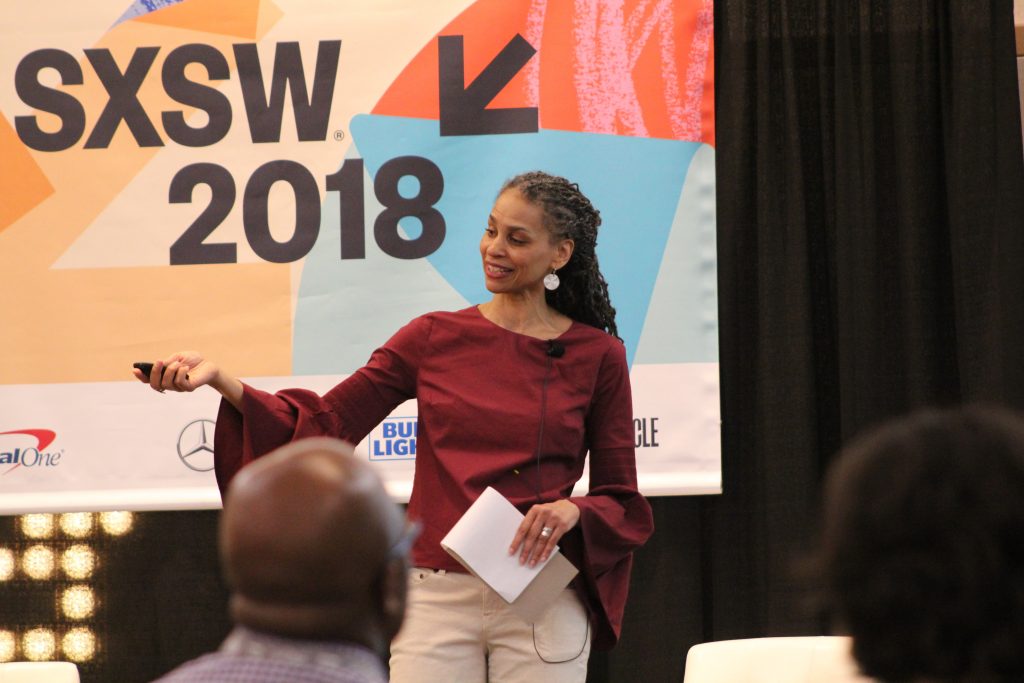
The New School + #SXSW: Maya Wiley Urges Digital Equity and Sanctuary
The next census will be taken in 2020, and for the first time ever, most Americans will be counted online.
Millions of people will be asked to register their age, sex, race, religion, income, and place of residence, among other self-identifying information, over the Internet. While going online is cost-effective, it’s far from full proof: roughly 20 percent of Americans don’t have broadband Internet access at home. That leaves the less-than-ideal option of using a smartphone to file information.
Left uncounted, millions of people — especially low-income people of color, the group most likely to lack Internet access — stand to lose out on electoral power for federal congressional seats and state and local representation, and federal funding for health care, housing, education, and more.
“If nothing is done to fix this situation, people of color, rural communities, Native communities — people who tend to be more digitally disconnected and vulnerable from a privacy standpoint — will be deeply undercounted in the census,” said Wiley, echoing arguments she made in a recent Daily News op-ed. She added that New York City lost $41 billion in health care and school funding because of undercounting in the last census.
Wiley, a nationally recognized digital equity advocate, shared her perspective in a talk, Race and Digital Sanctuary in 2018 America, and a panel co-hosted by The City of New York and Mastercard, Making Cities Inclusive, Equitable, and Sustainable at #SXSW.
Wiley discussed the census in the broader context of what she calls a “technological chasm.” Addressing an audience at the Westin in Downtown Austin, she raised awareness of Internet privacy, data collection, surveillance, and lack of broadband access and how they disproportionately affect marginalized populations. She called for “digital sanctuary,” including protection from predictive policing, use of smart city technologies for surveillance, and law enforcement tracking of location services and social media to identify immigrants and protest groups.
Wiley brought special attention to the census — what she called “a pillar of our democracy.” In the last census, an estimated 2.1 percent blacks and 1.5 percent of Latinos were undercounted, Wiley says. The Trump Administration doing little to improve those numbers. Funding cuts pushed by the Administration mean “less testing and review to make sure people understand and respond to the census,” Wiley said, and a proposed citizenship question has stoked concerns that immigrants will avoid the census altogether.
“The Department of Justice wants to add this question when people already have a deep distrust of government,” Wiley added. “For cities with large immigrant populations, this is an enormous issue.”
While the situation is dire, policymakers and community groups across the country are working toward solutions to narrow the digital divide and provide digital sanctuary. Wiley pointed to the Detroit Community Technology Project’s Equitable Internet Initiative — an effort to ensure that more Detroit residents have the ability to leverage digital technologies for social and economic development — and efforts to build digital infrastructure to reflect “hyperlocal concerns.” Wiley herself has taken action, launching The New School’s Digital Equity Laboratory, an initiative that aims to identify and address injustices that persist and evolve as technology transforms our cultural, social, and political systems.
While technology is often used in nefarious ways, it doesn’t have to be. During Making Cities Inclusive, Equitable, and Sustainable, Wiley stressed the need to “think about technology not only in a way that works for governments and businesses, but also for people.”
“We need to recognize the real human implications for people’s daily lived experience,” she says. “There isn’t a problem intrinsically with technology — it’s how it’s used. We need to use technology as a problem-solving tool that can better our communities.”